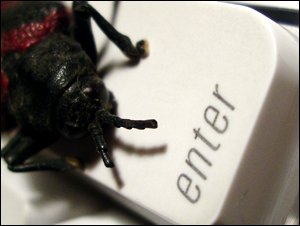 Question:
Question:
The other day I was listening to a popular “Tech” radio program when the host took a call from a man who asked for a recommendation for a good anti-virus program. His answer surprised me: “I don’t use anti-virus software, and you don’t need to either.”
He went on to explain that the only time your PC can get a virus is when you open an infected email or visit an infected site, and if you only open emails from trusted senders and are careful about the websites you visit you’ll be completely safe without running any anti-virus software at all. He said all those programs really do is slow down your computer.
Now I’m really confused. Do I need antivirus software on my computer or not? Your opinion will be greatly appreciated. -Fran Singleton
Answer:
Fran, I’m pretty sure I know which host you’re talking about because I listen to his show fairly often myself. He’s actually a really sharp guy who knows a LOT about all things tech. He’s also a very engaging host who gets his points across quite effectively. I respect this gentleman a lot, but in this case I think he’s dead wrong.
The vast majority of all viruses (and spyware for that matter) are indeed downloaded to a user’s PC when he/she opens an infected email or visits an infected website. That being the case, on the surface the advice you received makes sense. Just be sure to open emails from people that you know and trust and limit your web browsing to only well-known, trusted sites and you should be fine, right? Sadly, the answer is no.
Hackers and other mischief makers often disguise their malware-laden emails as correspondence from trusted sources such as a well-known person, popular websites and even your own friends and family members. All they have to do is gain access to your computer’s address book and then send you an email that appears to be coming from your Aunt Hazel. Surely you can trust her, right? Well, not if Aunt Hazel didn’t really send the email! While it’s true that you can greatly reduce your chance of opening an infected email by paying careful attention to who sent it to you, there is simply no way to remove the risk altogether. The bad guys are simply too smart and too ubiquitous.
As far as avoiding infected websites goes, that’s an even harder task. Let me ask you a simple question: Do you use Google, Bing, Yahoo or some other search engine to find the things you’re looking for on occasion? If your answer is yes (and I’ll bet it is), how do you know that the pages listed on the search results page are all free and clear of viruses? The fact is even though the search engines are getting better all the time at weeding out “bad” sites from their search results, there are still plenty of malware infected pages showing up, even on page one of the search listings. Despite our best efforts, avoiding them 100% of the time is simply impossible.
And finally, concerning his comment about antivirus software slowing down your computer: It does indeed, but modern PC’s are plenty powerful enough to run these programs in the background without a noticeable degradation in system performance. In other words, you probably won’t even be able to tell the difference.
My recommendation is to always err on the side of caution when it comes to malware. Get your hands on a good anti-virus and anti-spyware suite and run it at all times. Like my grandma used to say: “Better safe than sorry”.
About the author: Rick Rouse is the owner of RLROUSE.COM. He is also an A+ Certified computer technician with over 30 years of experience in the computer industry. Do you have a computer question that you’d like to have answered? Send it in and I’ll answer it right here (and via email as well).
Credits: Photo courtesy of Ines Teijeiro.